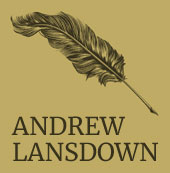One poem by Geoffrey Lehmann
1. “Parenthood” – with a literary critique by Geoff Page
Parenthood
I have held what I hoped would become the best minds of a generation
Over the gutter outside an Italian coffee shop watching the small
Warm urine splatter on the asphalt – impatient to rejoin
An almond torta and a cappuccino at a formica table.
I have been a single parent with three children at a Chinese restaurant
The eldest five years old and each in turn demanding
My company as they fussed in toilets and my pork saté went cold.
They rarely went all at once; each child required an individual
Moment of inspiration – and when their toilet pilgrimage was ended
I have tried to eat the remnants of my meal with twisting children
Beneath the table, screaming and grabbing in a scrimmage.
I have been wiping clean the fold between young buttocks as a pizza
I hoped to finish was cleared from a red and white checked table cloth.
I have been pouring wine for women I was hoping to impress
When a daughter ran for help through guests urgently holding out
Her gift, a potty, which I took with the same courtesy
As she gave it, grateful to dispose of its contents so simply
In a flurry of water released by the pushing of a button.
I have been butted by heads which have told me to go away and I have done so,
My mouth has been wrenched by small hands wanting to reach down to my tonsils
As I lay in bed on Sunday mornings and the sun shone through the slats
Of dusty blinds. I have helpfully carried dilly-dalliers up steps
Who indignantly ran straight down and walked up by themselves.
My arms have become exhausted, bouncing young animals until they fell asleep
In my lap listening to Buxtehude. ‘Too cold,’ I have been told,
As I handed a piece of fruit from the refrigerator, and for weeks had to warm
Refrigerated apples in the microwave so milk teeth cutting green
Carbohydrate did not chill. I have pleasurably smacked small bottoms
Which have climbed up and arched themselves on my lap wanting the report
And tingle of my palm. I have known large round heads that bumped
And rubbed themselves against my forehead, and affectionate noses
That loved to displace inconvenient snot from themselves onto me.
The demands of their bodies have taken me to unfamiliar geographies.
I have explored the white tiles and stainless steel benches of restaurants kitchens
And guided short legs across rinsed floors smelling of detergent
Past men in white with heads lowered and cleavers dissecting and assembling
Mounds of sparkling pink flesh – and located the remote dark shrine
Of a toilet behind boxes of coarse green vegetables and long white radishes.
I have badgered half-asleep children along backstreets at night, carrying
Whom I could to my van. I have stumbled with them sleeping in my arms
Up concrete steps on winter nights after eating in Greek restaurants,
Counting each body, then slamming the door of my van and taking
My own body, the last of my tasks, to a cold bed free of arguments.
I have lived in the extreme latitudes of child rearing, the blizzard
Of the temper tantrum and my own not always wise or honourable response,
The midnight sun of the child calling for attention late at night,
And have longed for the white courtyards and mediterranean calm of middle age.
Now these small bodies are becoming civilised people claiming they are not
Ashamed of a parent’s overgrown garden and unpainted ceilings
Which a new arrival, with an infant’s forthrightness, complains are ‘old’.
And the father of this tribe sleeps in a bed which is warm with arguments.
Their bones elongate and put on weight and they draw away into space.
Their faces lengthen with responsibility and their own concerns.
I could clutch as they recede and fret for the push of miniature persons.
And claim them as children of my flesh – but my own body is where I must live.
© Geoffrey Lehmann
A Critique of “Parenthood” by Geoff Page
Geoffrey Lehmann’s poem, ‘Parenthood’, is a good example of how flexible the canon of great poems can be. The great poems in English are supposed to be serious, iambic pentameter pieces about Nature or God – or things comparably transcendent. We are not so used to humorous, albeit serious, poems about the (sometimes gross) details of child rearing. Such things are normally left to newspaper columnists but Australian poet, Geoffrey Lehmann, demonstrates just how memorable an account of such activities can be in the hands of a genuine artist.
A reminder of the canon’s flexibility is also provided by the poem’s opening allusion to Allen Ginsberg’s famous poem, ‘Howl’: ‘I have seen the best minds of my generation destroyed by madness, starving hysterical naked …’ This cues us in immediately to the fact that ‘Parenthood’ is not going to be ‘that’ kind of poem. Rather it’s going to be (merely?) about the troubles of enforced single-parenthood and the ‘extreme latitudes of child rearing’. Lehmann hopes his children will ‘become the best minds of a generation’ but we are not to take this too seriously. Note, too, the contrast between Ginsberg’s ‘my’ generation and Lehmann’s much milder ‘a’ generation. It is as though the latter is warning us to be cautious of histrionics and find instead the poetry of everyday hardship and small rewards.
Significantly, Lehmann (like Ginsberg) uses Walt Whitman’s famous long-lined free verse. Ginsberg uses it as a direct hommage to a mentor but Lehmann uses the same device no less movingly. He realises that this kind of free verse is the perfect medium for the repetitious, ‘rolling with the punches’ dimension of child rearing. A neat, Gwen Harwood-like sonnet would not be adequate to his purposes (no matter how well done elsewhere). Lehmann needs a long, rolling, infinitely inclusive line that can accommodate all the telling detail he has in mind to deliver.
This doesn’t mean that the poem is without form. It does, clearly, have a narrative structure leading to the moment when their ‘faces lengthen with responsibility and their own concerns’ and the poet realises that it is in ‘my own body where I must live.’ It also has a considerable formal cleverness on a line-to-line basis. Lehmann does not use the Whitmanic (or ancient Hebraic) device of parallelism in a simple, repetitive and unvaried way. Not every line begins with ‘I have’. Sometimes the ‘I have’ starts a new sentence in the middle of a line. Other lines start with a different phrase altogether. There is also, too, a sense of the unexpected in the lineation, where the poet cuts suddenly to the beginning of a new line for emphasis, as in the ‘small / Warm urine …’ of lines 2 and 3 or the ‘individual / Moment of inspiration’ a little later on.
Similarly, Lehmann’s ‘free verse’ is not necessarily as ‘free’ as it looks. Take the opening phrase: ‘I have held / what I hoped / would become …’ It’s not hard to sense the anapaestic rhythm here – even though it quickly changes to something less regular in the rest of the line. In this part we have a kind of roving emphasis with the stress coming down irregularly but hard on the meaning’s three key syllables: ‘best’, ‘minds’ and ‘gen’.
‘Parenthood’ is also a reminder not only of the effectiveness of metaphor (‘the remote dark shrine / Of a toilet’; the ‘mediterranean calm of middle age’) but also of well-chosen, closely-observed detail (‘the small / Warm urine splatter’; ‘short legs across rinsed floors smelling of detergent’). Although the poem goes back to Whitman via Ginsberg it also owes quite a deal to American ‘Objectivists’ like William Carlos Williams who were probably the first to realise just how effective plain, non-metaphorical details can be.
We are used (generally rightly) to thinking of poetry as something compressed, where the maximum content is to be fitted into the minimum space. As Whitman, Ginsberg and many others realised, this need not always be the case. Over the millennia the writers of epics have always used images and little cameos of remarkable observation but they were also careful to locate these within an on-going rhetoric that established the tone of the work as a whole. Many parts of the old testament are classic examples of this strategy. Lehmann uses the technique ironically but no less successfully. He often employs circumlocutions rather than naming his object directly. Instead of writing something direct like ‘just grateful to flush it away’ Lehmann prefers: ‘grateful to dispose of its contents so simply / In a flurry of water released by the pushing of a button.’ This fits in with the mock-heroic tone of the whole poem (which, though self-effacing, does evoke the unsought heroism in being a single parent – or any sort of parent, for that matter).
A related dimension to this is the poem’s undoubted sense of authenticity. We feel these details are extracted from the poet’s own life, even if one or two of them could be anecdotes from friends in similar situations. It’s not merely a matter of the first person viewpoint; it’s a willingness to embrace the experience as a whole and his own role in it. It’s also his readiness to admit to his own ‘not always wise or honourable response’ to his kids’ tantrums – and the discretion with which he reveals that he now ‘sleeps in a bed which is warm with arguments’ as opposed to the minimal comfort of an earlier ‘cold bed free of arguments’.
The poem thus reminds us how much good poetry comes from life as it is actually lived and not just from speculations about its larger implications. This is ‘confessional’ poetry at its most convincing, where the particularity of detail takes on almost universal meaning, even for those who have not (or not yet) been parents – or those now reflecting on their own parents’ experience.
It’s significant, too, that Lehmann chooses to call the poem ‘Parenthood’ rather than ‘Fatherhood’, as he might well have done given the circumstances. In our society the situation he describes is more commonly borne by the mother. Seeing it through the eyes of the father seems to lend the experience an extra, less predictable perspective. It is just one more thing which helps to give the poem such wide applicability that it is difficult to imagine any reader remaining unmoved by it.
This essay by Geoff Page is from his book 80 Great Poems from Chaucer to Now (University of New South Wales Press, 2006) and is reproduced on andrewlansdown.com by kind permission of the author.
Return to OTHER POETS & POEMS OVERVIEW

